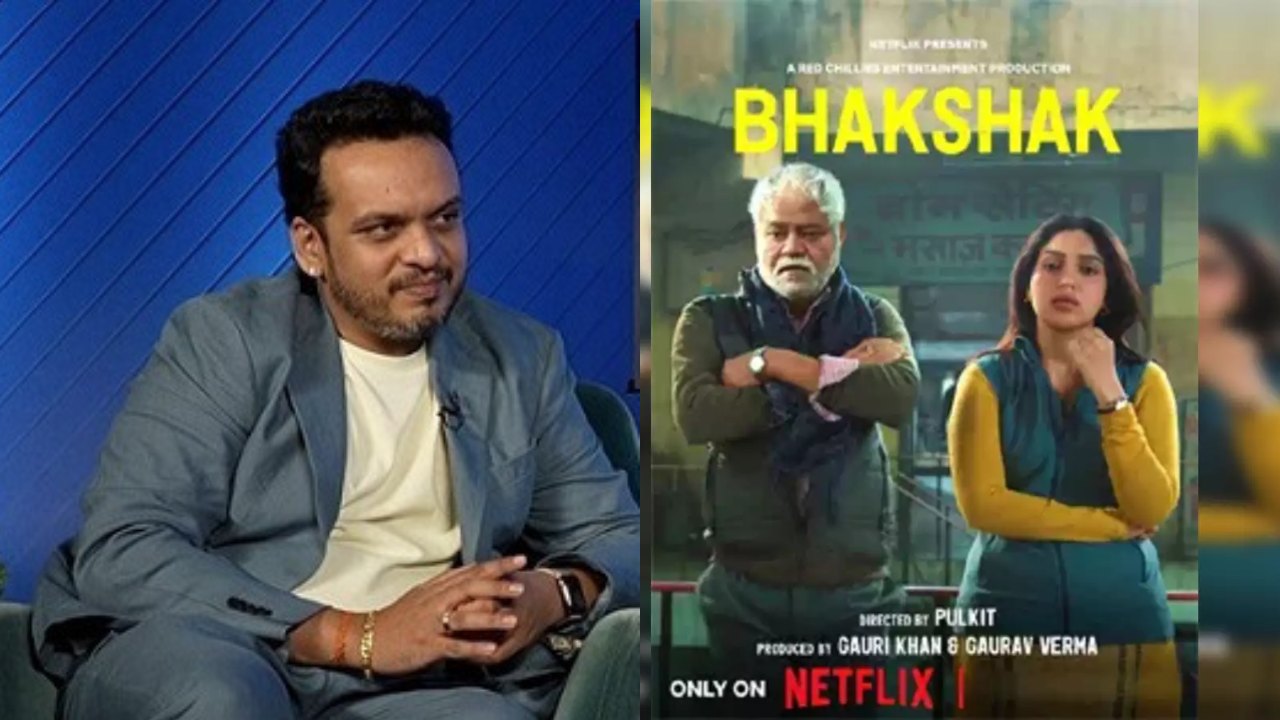Pulkit’s first film Maroon came and vanished without a trace. With the brilliant Bhakshak he hopes to start a dialogue on child abuse. “ It’s a difficult topic to speak about but we need to talk. I believe, once we start a conversation around it, we can save many lives from being scarred. I feel, making a film, inspired by real stories, becomes a huge responsibility. You cannot make a film which no one is going to watch. If so, then what’s the point?”
From the start, Pulkit was determined not to let the reprehensible crime of child abuse scare away the audience. “On the first day, when we started writing, we made up our mind that we don’t want people to move away with disgust, we want them to watch and feel for it. We made a point, we want to make a relevant film but without dropping the screenplay. So the balance is quite a conscious effort we took on the writing table itself.”
Pulkit was fighting for his life when he decided to make Bhakshak. “I was in pain, a lot of pain in 2019. Hooked to the IVs, in the hospital, fighting a demon called cancer. My wife who is also my co-writer, Jyotsana, suggested, that to come out of the bad times, we need to write. We started looking out for stories through which we can reflect on pain and suffering. And we came to know about a shelter home mishap in Deoria. We started digging further, a lot of shelter home cases, across the country were having the same story. We were curious, so we went more deep, a lot of shelter homes, across the globe, were having the same story. We were broke, and suddenly we started feeling that our pain was nothing. And that was the moment, we started writing this film.”
Bhakshak, says Pulkit, is not only inspired by the grisly case which has happened in Bihar. “A lot of other shelter home cases through out the globe have inspired me to make this. Yes, I am from Bihar, and I feel yes, that my socio-cultural background gives me a better perspective to tell this story in a better form. But never the less, if it was not set in Bihar, and was in some other state, I would have made the film with the same sense of responsibility.”
Pulkit’s research was very deep and disturbing. “We were clear that to get this story right, we had to go beyond the newspaper articles and make the film. Through the help of my lawyer friends in Delhi, we learnt more and more about the sexual abuse of the children and the Act (POCSO). We read a lot of real case materials, and interviewed a lot of people which included, lawyers, news reporters and also police personnel. The deeper we went, the more disturbing it became.We were not inspired from a single case, hence we didn’t want to put a name to it. And for a film like this, it doesn’t matter whether, you name the city A or B. What matter is, this is inspired from a real story and is still happening in your neighbourhood.”
About his exceptional cast in Bhakshak Pulkit says, “I was aware, that to tell a like this, you need actors who can play in both, the outer and also inner conflicts. And also to play these characters on screen, an actor needs to feel the pain, as I felt. On every character, we made our own checklists and then approached the actor. Bhumi Pednekar was my first choice.We narrated the film to Bhumi and then Bhumi disappeared.There was no response for the next six months. Then one day she called me that the script was haunting her, she wanted to be Vaishali. I feel blessed to have an ensemble like this. Bhumi, Sanjay Mishra, Aditya Shrivastava, Surya Sharma, Sai Tamhankar.. And thanks to my casting director, Mukesh Chhabra, even the actors who have just one scene in the film were just brilliant.”


